Research Highlight
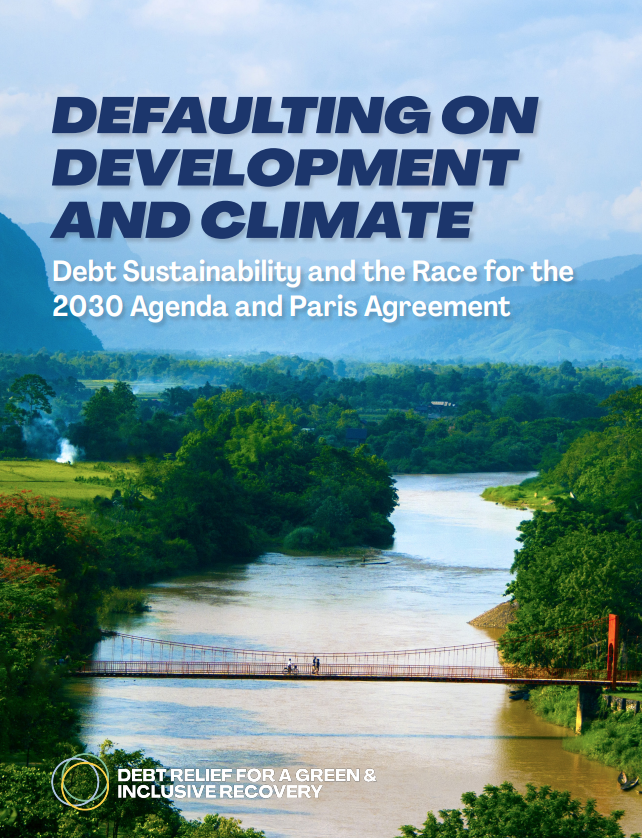
Defaulting on Development and Climate – Debt Sustainability and the Race for the 2030 Agenda and Paris Agreement
April 2024
Time is running out to achieve the goals set out in the United Nations 2030 Agenda for Sustainable Development and the Paris Agreement. Not meeting these goals will have tragic impacts on the lives of present and future generations; yet, emerging market and developing economies (EMDEs) are facing conditions that inhibit their ability to mobilize investment, including historic levels of external debt, higher interest rates and low growth prospects to 2030. The report “Defaulting on Development and Climate – Debt Sustainability and the Race for the 2030 Agenda and Paris Agreement” performs an enhanced global external debt sustainability analysis (DSA) to estimate the extent to which EMDEs can mobilize the recommended levels of external financing without jeopardizing debt sustainability.
Explore more Research
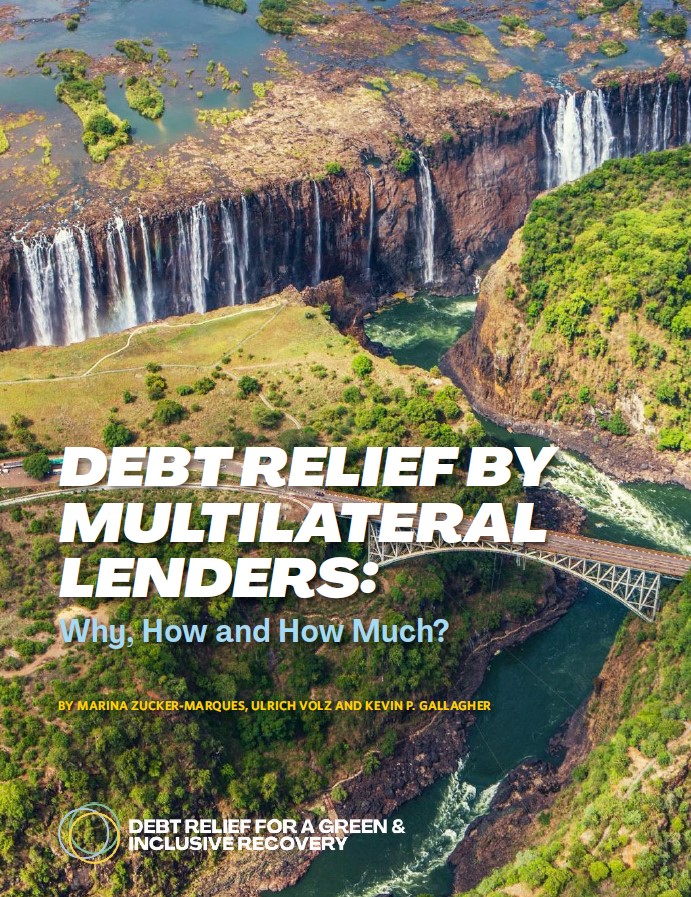
Debt Relief by Multilateral Lenders – Why, How and How Much?
September 2023
As the sovereign debt crisis in the Global South continues to unfold, the lack of involvement of multilateral development banks (MDBs) in debt relief efforts has become a contentious issue among major creditors. Although the Group of 20 (G20) has explicitly called for MDBs to develop options to share the burden of debt relief efforts, MDBs have not presented any concrete and systemic plan thus far on how to contribute to debt relief efforts to countries applying for the G20 Common Framework. The report “Debt Relief by Multilateral Lenders – Why, How and How Much?” aims to contribute to the ongoing debate over debt relief negotiations and MDBs in three main areas.
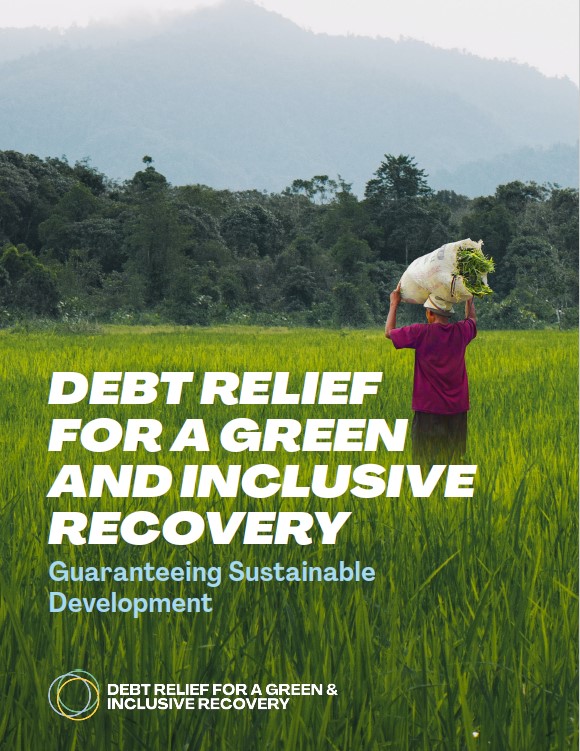
Guaranteeing Sustainable Development
April 2023
The report “Guaranteeing Sustainable Development“ analyzes new data on the level and composition of public and private external sovereign debt for emerging markets and developing economies (EMDEs). It estimates the size of debt restructuring and suspension necessary for the 61 EMDEs in or at high risk of debt distress to achieve debt sustainability and put them on a path towards meeting their development goals and climate commitments.
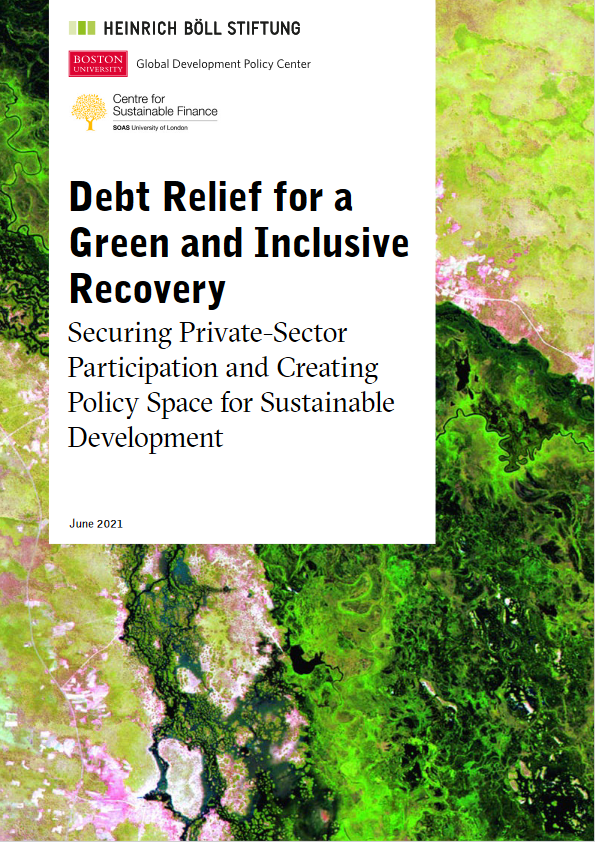
Securing Private-Sector Participation and Creating Policy Space for Sustainable Development
June 2021
The report “Securing Private-Sector Participation and Creating Policy Space for Sustainable Development” updates our proposal with more details on how countries can develop their green and inclusive recovery strategies, and how the private sector can be induced to participate in debt reduction.
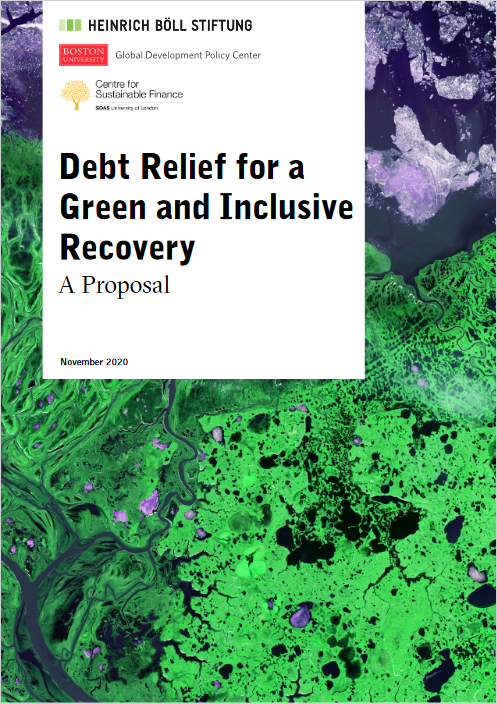
Debt Relief for a Green and Inclusive Recovery
November 2020
The proposal “Debt Relief for Green and Inclusive Recovery” published by the Heinrich Böll Stiftung, the Center for Sustainable Finance at SOAS, University of London and Boston University Global Development Policy Center suggests that low and middle-income countries with unsustainable debt burdens receive substantial debt relief by public and private creditors, in order to provide fiscal space for investment in Covid-19-related health and social spending, climate adaptation and green economic recovery strategies. Private creditors participating in the debt restructuring would swap their old debt holdings with a haircut for new “Green Recovery Bonds”.
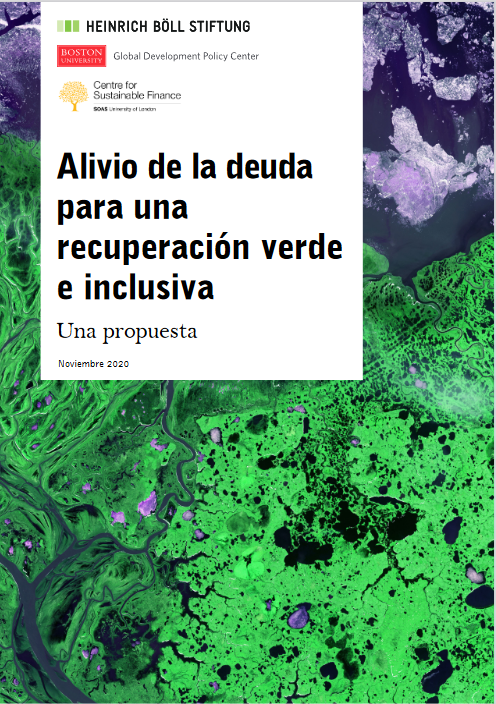
Alivio de la Deuda para una Recuperación Verde e Inclusiva
SPanish Translation
Con el propósito de permitir una recuperación ecológica y socialmente justa para todos los países, resulta necesario abordar urgentemente los problemas de la deuda pública para que todos los gobiernos tengan el espacio fiscal necesario para financiar gastos sanitarios y sociales cruciales e invertir en una recuperación ecológica e inclusiva.